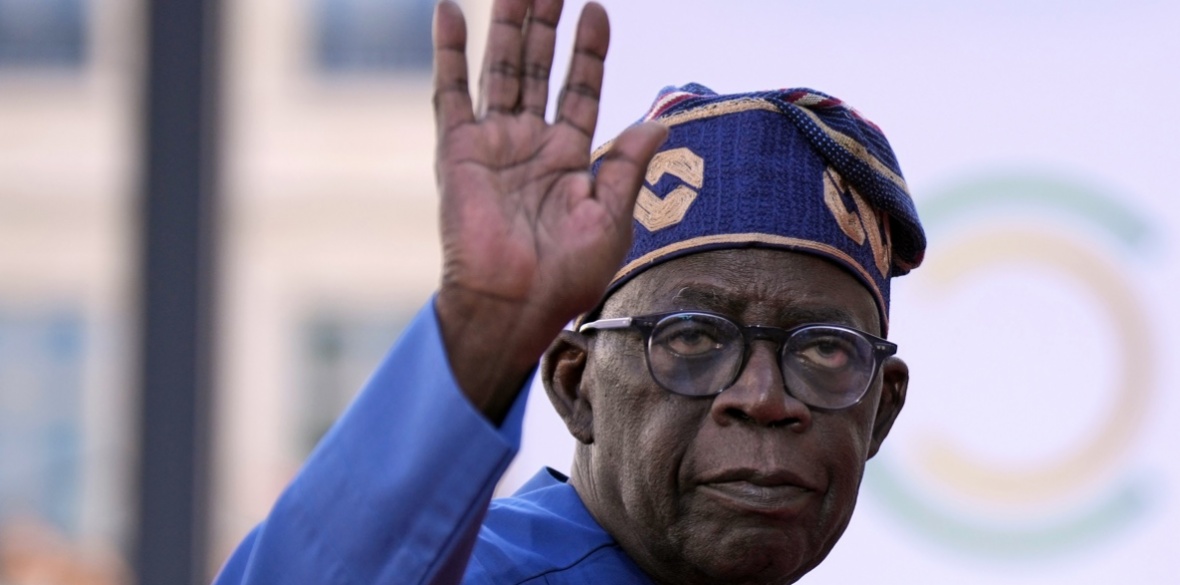This is the last article you can read this month
You can read more article this month
You can read more articles this month
Sorry your limit is up for this month
Reset on:
Please help support the Morning Star by subscribing here
NIGERIA’S lawmakers on Thursday approved the new government’s first supplemental budget, which includes huge allocations for SUVs and houses for the president, his wife and other public officials, sparking anger and criticism from citizens in one of the world’s poorest countries.
In the budget presented to lawmakers to supplement the country’s expenditures for 2023, the government had allocated about £30 million for the presidential air fleet, vehicles and for renovation of residential quarters for the office of the president, the vice-president and the president’s wife.
Before the budget was approved, and facing increasing criticism, lawmakers earlier eliminated £4.9 million budgeted for a “presidential yacht” and moved it to “student loans.”
A Nigerian presidential spokesman said that President Bola Tinubu had not given approval for the yacht.
The country’s National Assembly recently confirmed that more than 460 federal lawmakers will each get SUVs, reportedly worth more than £121,000 each, which, they said, would enable them to do their work better.
“All of this speaks to the gross insensitivity of the Nigerian political class and the growing level of impunity we have in the country,” said Oluseun Onigbinde, who founded Nigerian fiscal transparency group BudgIT.
The allocations reminded many Nigerians of the economic inequality in a country where politicians earn huge salaries while essential workers like doctors and academics often go on strike to protest against meagre wages.
Consultants, who are among the best-paid doctors in Nigeria, earn about £405 a month. After several strikes this year, civil servants got the government to raise their minimum wage to £54.35 a month.
Such steep expenditure on cars in a country where surging public debt is eating up much of the government’s dwindling revenues show its “lack of priorities” and raises questions about the lack of scrutiny in the government’s budget process and spending, said Kalu Aja, a Nigerian financial analyst.
Kingsley Ujam, a trader working at the popular Area 1 market in Nigeria’s capital city of Abuja, said he struggles to feed his family and has lost hope in the government to provide for their needs.
He said: “They (elected officials) are only there for their pockets.”
While Nigeria is Africa’s top oil producer, chronic corruption and government mismanagement have left the country heavily reliant on foreign loans and aid, while at least 60 per cent of its citizens live in poverty.
Austerity measures introduced by the newly elected president have drastically cut incomes and caused more hardship for millions already struggling with record inflation.










